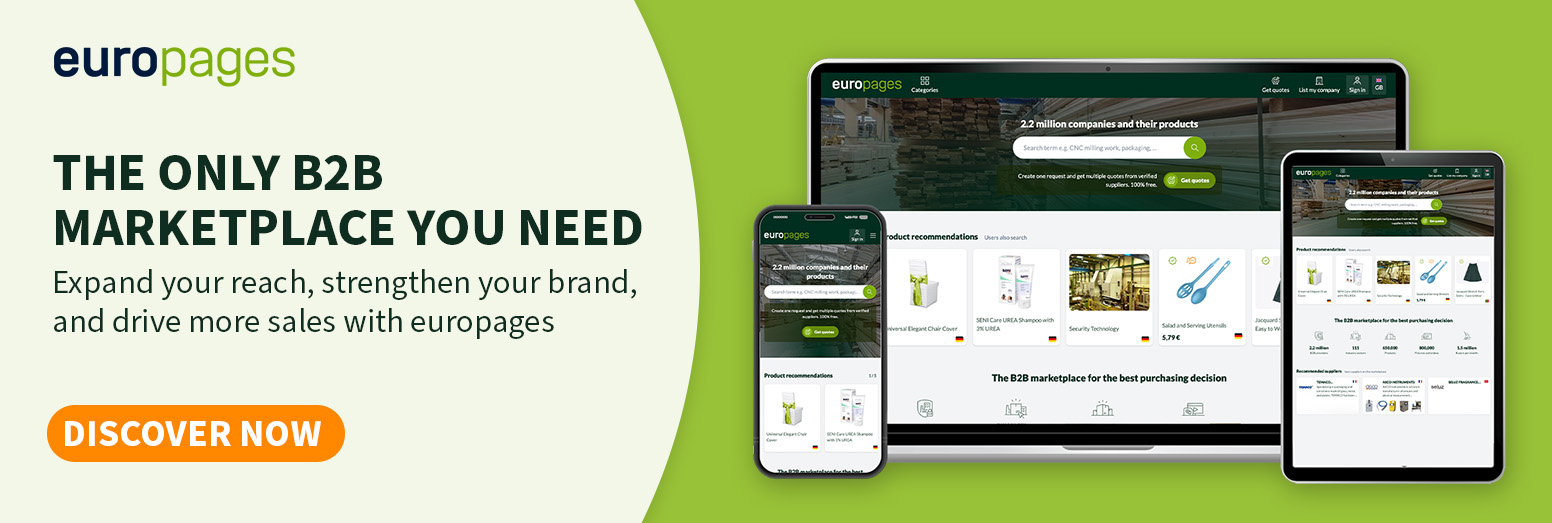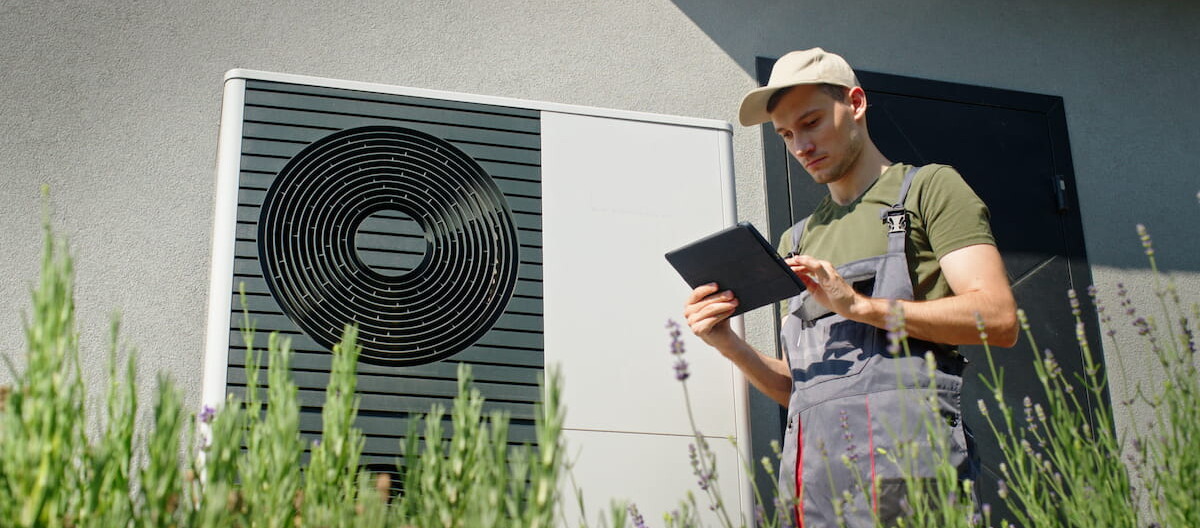Table of Content
- Rethinking Heat Demand in the EU with Industrial Heat Pumps
- How the Manufacturer of Heat Pumps Is Powering Industrial Decarbonization in Europe
- Sectors Where Industrial Heat Pumps Are Already Delivering Results
- What’s Holding Industries Back from Using Industrial Heat Pumps?
- Pro Tip for a Manufacturer of Heat Pumps: Collaboration with Energy Utilities for Strategic Advantage
- Accelerating Industrial Heat Pump Adoption through Policy Support
- Conclusion
1. Rethinking Heat Demand in the EU with Industrial Heat Pumps
Europe’s industrial sector uses a huge amount of energy for heat. In fact, about 66% of all energy used in EU industry goes to heat generating processes which is needed for things like food production, paper making, chemical processing, and textile manufacturing.
Most of this heat still comes from fossil fuels, especially natural gas. That makes industrial heat one of the biggest sources of carbon emissions in the EU.
Now, with stricter climate rules and rising carbon prices, the pressure is on to switch to cleaner solutions. One of the most promising options is the industrial heat pump.
Today’s industrial heat pump systems, including air to air heat pumps and central heating pumps, can deliver temperatures of up to 200°C. That’s enough to cover around 37% of the EU’s current industrial heat demand—especially in sectors that use low to medium-temperature heat.
Although adoption is still slow, every manufacturer of heat pumps is working quickly to improve the technology and raise the temperature range. And with more incentives and support for heat pump installation, the chance to cut emissions across industry is growing—if companies act now.
2. How the Manufacturer of Heat Pumps Is Powering Industrial Decarbonization in Europe
Behind every industrial heat pump installed on the factory floor is a manufacturer driving the clean energy transition from the ground up.
The manufacturer of heat pumps today is no longer just a supplier of equipment—they are an innovator, a system enabler, and a strategic partner in helping industry meet its decarbonization goals.
From central heating pumps for large buildings to high-capacity industrial heat pumps capable of reaching temperatures up to 200°C, manufacturers are pushing the limits of what heat pump technology can deliver.
Product development has accelerated in recent years, with the European manufacturer of heat pumps scaling up production capacity and advancing new-generation systems tailored for industrial use.
This progress owes much to collaboration, both within the industry and with other sectors. Organizations like the European Heat Pump Association (EHPA) have played a key role in bringing together leading EU-based producers, researchers, and policymakers to align on standards, share innovations, and accelerate the deployment of industrial heat pump solutions.
Crucially, manufacturers of heat pumps are not working in isolation. They are increasingly partnering with high-heat-demand sectors such as food processing, paper manufacturing, and chemicals to develop tailored systems that match real-world operating needs.
Whether it’s designing air to air heat pumps for drying processes or delivering modular systems for streamlined heat pump installation, manufacturers are helping industrial clients overcome the practical and technical hurdles of decarbonization.
As technology matures and new business models emerge—such as heat-as-a-service or integrated energy systems—the role of the manufacturer of heat pumps will only grow in strategic importance.
Their ability to deliver scalable, efficient, and sector-specific solutions makes them critical allies in the EU’s effort to reduce emissions, lower energy costs, and future-proof industrial operations.

3. Sectors Where Industrial Heat Pumps Are Already Delivering Results
Industrial heat pumps are still new in some sectors, but a number of companies in Europe are already showing how well they can work.
These real-life examples show that, finding the right manufacturer of heat pumps, industries can save energy, cut emissions, and run more efficiently—especially when supported by the right expertise and policies.
Wepa Greenfield Paper Plant (France)
At its plant in southwestern France, tissue paper company Wepa has added a large industrial heat pump to its drying process. The system takes waste heat at 70°C and boosts it to 140°C, so it can be reused for drying paper—a step that normally uses a lot of energy.
Partly funded by the French government, the project shows that heat pumps can be added to existing systems and still perform well in nonstop, high-demand operations.
On top of using less fossil fuel, the setup helps cut CO₂ emissions and lower energy bills. It’s a strong example of how a skilled manufacturer of heat pumps can provide solutions for complex industrial needs.
Brewing Industry
Breweries need steady heat for important steps like mashing, boiling, and cleaning—usually at temperatures below 100°C, which modern industrial heat pumps can easily handle.
Some medium-sized breweries in Europe are already using heat pumps to capture and reuse heat from their processes, helping them cut both emissions and energy costs right away.
Working with an experienced manufacturer of heat pumps allows brewers to improve energy efficiency while maintaining full control over their processes and product quality. This makes switching to sustainable heat a practical and cost-effective step forward.
Dairy Processing
In the dairy industry, processes like pasteurization, drying, and cleaning need precise temperature control and must meet strict hygiene rules. Industrial heat pumps are already being used in several dairy plants to provide the right level of heat while also recovering energy.
Through close cooperation with a trusted manufacturer of heat pumps, these systems are designed to meet both technical needs and hygiene regulations—showing how flexible and effective heat pumps can be in food production.
Food Processing (Pasta, Sauces, Prepared Meals)
Factories that produce ready-made meals or packaged foods use a lot of hot water and steam for cooking, sterilizing, and drying. Installing heat pumps in these facilities has helped cut energy use and lower emissions—without affecting production.
With growing pressure from supermarket supply chains and sustainability targets, many of these companies are now turning to a manufacturer of heat pumps to help meet their climate goals and manage energy costs more effectively over time.
Across these sectors, the results speak for themselves:
- Annual CO₂ savings in the range of several thousand tons per facility
- Lower operating costs through waste heat recovery and improved thermal efficiency
- Minimal disruption during retrofits
- Strong replicability in industries with similar heat profiles
These projects aren’t just one-off successes—they serve as practical models that can be scaled up across the EU. They prove that industrial heat pumps are both reliable and cost-effective, giving the manufacturer of heat pumps a strong foundation to form lasting partnerships, influence policy, and grow into new markets.

4. What’s Holding Industries Back from Using Industrial Heat Pumps?
Even with proven benefits—lower emissions, energy savings, and improved efficiency—the adoption of industrial heat pumps in EU industry remains limited.
Several key barriers continue to slow progress:
- High upfront investment: The cost of purchasing and installing an industrial heat pump can be significant, especially for small and mid-sized businesses. Even though these systems often pay for themselves over time, the initial financial hurdle is a major concern.
- Limited awareness: Many industrial players are still unfamiliar with how modern heat pump systems—like central heating pumps or air to air heat pumps—can support medium-temperature processes.
- Complex retrofitting: Integrating a heat pump into existing infrastructure can be challenging, particularly for continuous production lines that cannot afford downtime.
- Lack of clear data: Fragmented or incomplete data on heat pump adoption and performance makes it harder for companies to assess the business case or benchmark against peers.
These challenges are real—but they are not insurmountable. The manufacturer of heat pumps has a central role to play in breaking down these barriers and supporting the European industry in the energy transition.
Key solutions include:
Modular, scalable systems: The manufacturer of heat pumps offers flexible and adaptable technologies, making it easier to integrate solutions into existing plants with minimal disruption.
- Training and outreach: More manufacturers are now investing in education—providing hands-on training, clear documentation, and technical support to help industries understand how heat pumps can meet their needs.
- Innovative business models: Options like heat-as-a-service, where companies pay for the heat rather than the equipment, help reduce the financial risk of adoption. These models lower the barrier to entry and make decarbonization more accessible.
As both technology and awareness continue to improve, the manufacturer of heat pumps will keep playing an important role in helping industries switch to cleaner energy and reach their climate goals.
5. Pro Tip for a Manufacturer of Heat Pumps: Collaboration with Energy Utilities for Strategic Advantage
Partnering with energy utilities can give every manufacturer of heat pumps a big advantage. It allows them to offer complete solutions that include both heat pump installation and the necessary energy connections or renewable energy sources.
These partnerships make it easier for businesses to adopt heat pumps, while also helping them save on energy costs through green energy incentives. Working with utilities also creates opportunities for joint marketing, reaching more customers, and entering new markets—especially in areas with strong goals for reducing emissions.
To drive the next phase of industrial decarbonization, manufacturers of heat pumps must go further and take decisive action on multiple fronts:
- Invest in R&D for High-Temperature Solutions (200°C+): Focus on developing heat pumps that can meet the needs of high-heat industries like steel and cement, opening up access to new industrial markets.
- Partner with Industrial Clients on Pilot Projects: Collaborate with energy-intensive industries to demonstrate the effectiveness of industrial heat pumps through pilot projects—highlighting real-world benefits like energy savings and emissions reductions.
- Build Coalitions to Advocate for Policy Change : Join forces with peers and stakeholders to raise visibility, push for stronger incentives, and influence supportive policy changes that accelerate market adoption.
The reward: manufacturers who lead this charge will not only capture the growing demand for sustainable heating solutions but also play a key role in achieving Europe’s climate goals—positioning themselves as essential players in the clean energy transition.
6. Accelerating Industrial Heat Pump Adoption through Policy Support
Policy support plays a crucial role in accelerating the adoption of industrial heat pumps. Several existing frameworks, such as national subsidies, loans, and tax incentives, are already helping businesses lower the upfront costs of switching to cleaner technologies.
These financial incentives make heat pump installation more accessible, especially for energy-intensive industries.
At the EU level, the Industrial Decarbonization Accelerator Act is poised to support businesses in their decarbonization efforts by providing financial incentives and a clear framework for adopting industrial heat pumps. This legislation is key to fostering growth in the sector.
For manufacturers of heat pumps, engaging in policy consultation and lobbying is vital to improve the support landscape and also to expand their reach.
Key areas to focus on include:
- Simplifying permitting to speed up installations.
- Stronger incentives for industrial customers to adopt heat pumps.
- Increased R&D funding for high-temperature heat pump development.
With the right policy backing, the manufacturer of heat pumps can help drive the EU’s energy transition and boost industrial decarbonization.

7. Conclusion
Industrial heat pumps are a powerful, underused solution that could help cut up to 25% of EU industrial emissions while boosting energy efficiency and reducing costs.
Manufacturers play an important role by advancing high-temperature technologies, partnering with industries, and supporting adoption through innovation and collaboration.
With strong policy support and strategic action, they can lead the transformation toward a cleaner, more competitive European industry.
For more information on energy and sustainability, read these insightful articles on europages’ Inside Business blog:
Trump’s 2025 Tariffs Hit EU Provider of Raw Materials
Solar Panels and Smart Homes: The Future of Construction
Heat Pumps: Technology of the Future? | Europages
Sustainable Development: Sustainability Goals | Europages
Energy transition: the future of storage systems | Europages

